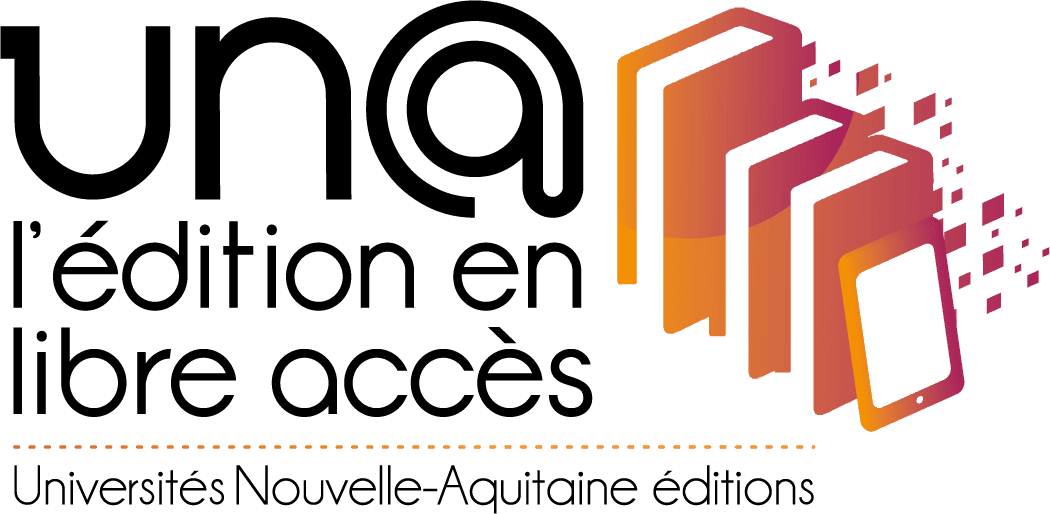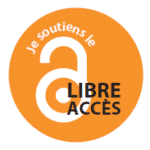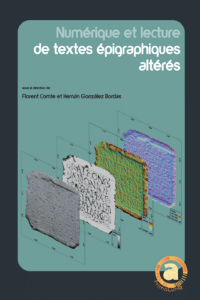UN@ est une plateforme d'édition de livres numériques pour les presses universitaires de Nouvelle-Aquitaine
Auteur : Angelos Barmpoutis

University of Florida
P.O. Box 115810
Gainesville, FL 32611
USA
angelos@digitalworlds.ufl.edu
0000-0003-3271-7965
Angelos Barmpoutis
P.O. Box 115810
Gainesville, FL 32611
USA
angelos@digitalworlds.ufl.edu
0000-0003-3271-7965
Angelos Barmpoutis
Angelos Barmpoutis is a Professor of Digital Arts and Sciences and coordinator of research and technology in the Digital Worlds Institute at the University of Florida. He is also an affiliate faculty of the Computer and Information Science and Engineering Department and the Biomedical Engineering Department, University of Florida. His current research projects focus on automated analysis of human motion, 3D reconstruction and dissemination of digital cultural heritage, applications of virtual and augmented reality, and medical image analysis. For his contribution to the aforementioned areas, he received in 2014 the Merit Award from the IEEE International Conference on Connected Vehicles, in 2016 he was finalist for the Rome Prize for Historic Preservation and Conservation, and was named UF Research Foundation Professor for 2020-2023. Dr. Barmpoutis has coauthored numerous highly cited publications in the aforementioned topics, and his work has led to patented and copyrighted inventions registered in the US, and been funded by several awards and grants from various funding agencies including the National Science Foundation, the National Institutes of Health, the National Endowment for the Humanities, the US Department of Transportation, and the Andrew W. Mellon Foundation. In the international community he is also known for the Digital Epigraphy and Archaeology project that he is directing since 2011 and the highly cited Java-For-Kinect open-source library, which has been continuously used since 2013 in more than 50 countries around the world.
Bibliography
- Amin, M., Barmpoutis, A., Berti, M., Bozia, E., Hensel, J. and Naether, F., 2023. The Digital Rosetta Stone Project. Chapter 3 In Ancient Egypt, New Technology: The Present and Future of Computer Visualization, Virtual Reality and other Digital Humanities in Egyptology, R. Lucarelli, J. Roberson, and S. Vinson (ed.), Harvard Egyptological Studies, vol. 17, pp. 58-84. https://doi.org/10.1163/9789004501294
- Amin, M., Barmpoutis, A., Berti, M., Bozia, E., Hensel, J. and Naether, F., 2018. Depth map of the Rosetta Stone. http://dx.doi.org/10.17613/t1e2-0w02
- Barmpoutis, A. and Bozia, E., 2017. Augmenting the Workspace of Epigraphists. An interaction design study. Proceedings of the EAGLE 2016 International Conference, Digital and Traditional Epigraphy in Context, S. Orlandi, R. Santucci, F. Mambrini, P. M. Liuzzo (eds.), Collana Convegni, vol. 36, pp. 209-220. https://doi.org/10.13133/978-88-9377-021-7
- Barmpoutis, A., Bozia, E. and Fortuna, D., 2015. Interactive 3D digitization, retrieval, and analysis of ancient sculptures, using infrared depth sensors for mobile devices. Lecture Notes in Computer Science (Springer). Proceedings of the 9th International Conference on Universal Access in Human-Computer Interaction. Access to the Human Environment and Culture., vol. 9178 (Part IV), pp. 11-Mar. https://doi.org/10.1007/978-3-319-20687-5_1
- Lame, M., Sarullo, G., Boschetti, F., Dellepiane, M., Bozia, E., Barmpoutis, A. and Rosmorduc S., , 2015. Open-Access Epigraphy: The issues of partnering traditional with digital. LEXIS: Poetica, retorica e communicazione nella tradizione classica, vol. 33, pp. 30-Sep.
- Bozia, E. and Barmpoutis, A., 2015. Life and afterlife of archaeological sources: Electronic preservation, dissemination, and study of Latin inscriptions. Archeologia e Calcolatori, vol. 26, pp. 30-32.
- Gallen, R., Eastop, D., Bozia, E. and Barmpoutis, A., 2015. Digital imaging: the application of shape-from-shading to lace, seals and metal object. ICON Journal of Conservation, vol. 38(1), pp. 41-53. https://doi.org/10.1080/19455224.2014.999004
- Bozia, E., Barmpoutis, A. and Wagman, R., 2014. Open-Access Epigraphy: Electronic Dissemination of 3D digitized Archaeological Material. In Proceedings of the International Conference on Information Technologies for Epigraphy and Digital Cultural Heritage in the Ancient World (EAGLE 2014), Sapienza Università Editrice, pp. 421-435. https://doi.org/10.13133/978-88-98533-42-8
- Barmpoutis, A., 2013. Digital Epigraphy Toolbox. Humanities Commons, pp. 11-Jan. http://dx.doi.org/10.17613/M64W9R
- Barmpoutis, A., Bozia, E. and Wagman, R., 2010. A novel framework for 3D reconstruction and analysis of ancient inscriptions. Journal of Machine Vision and Applications, vol. 21(6), pp. 989-998. https://doi.org/10.1007/s00138-009-0198-7
Additional contents
3D Data Acquisition and Dissemination
University of Florida, mars 2018 (©UFlibraries).
The Digital Rosetta Stone
British Museum, juillet 2021 (©Risolviamo).
Mots clés
digital epigraphy, digital squeeze, 3D printing, augmented reality, preservation, dissemination, photogrammetry
Over the past decade, archaeology and epigraphy have been reconsidering their modus operandi. Prompted and facilitated by technological advances, motivated by new research questions, and challenged by growing calls to engage with contemporary audiences,…


